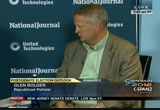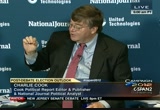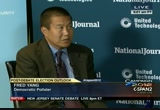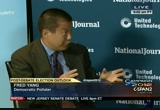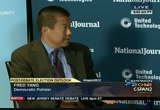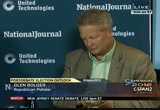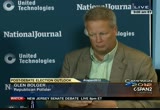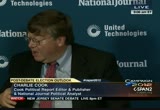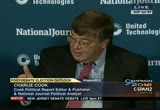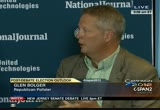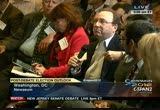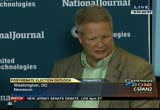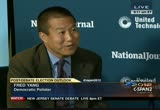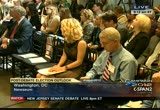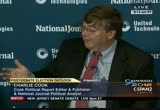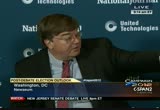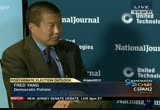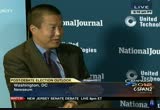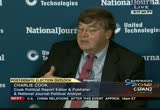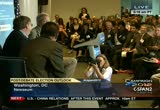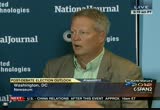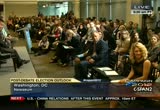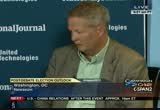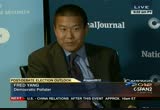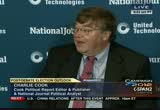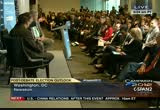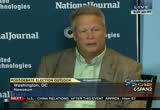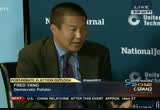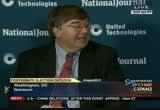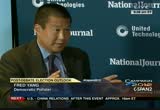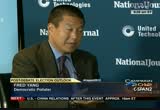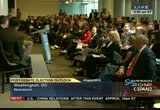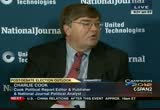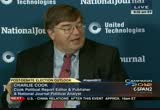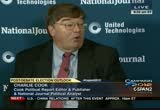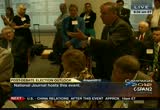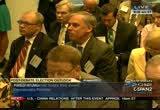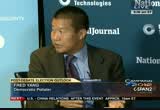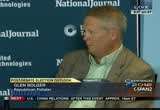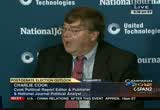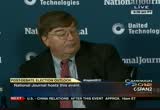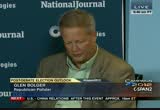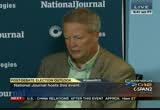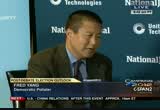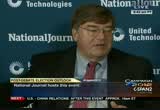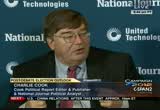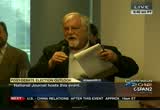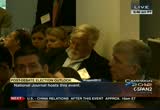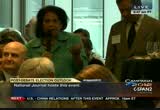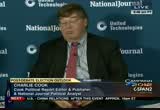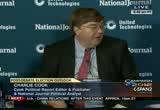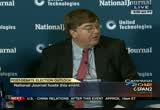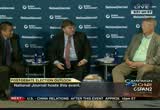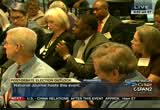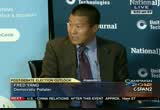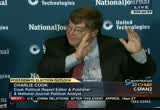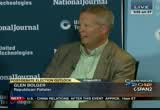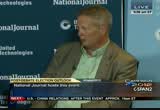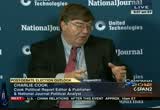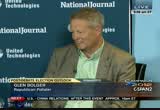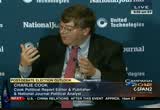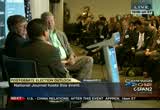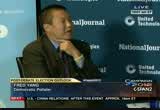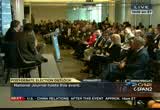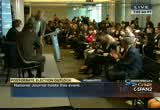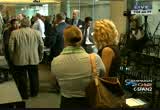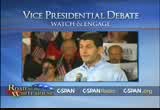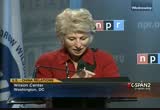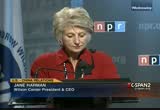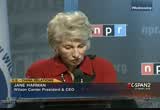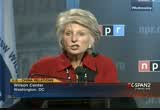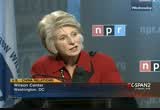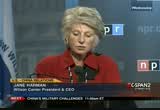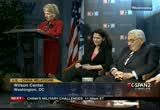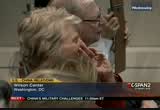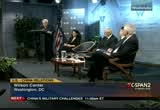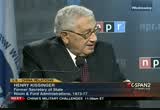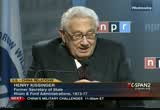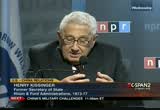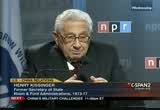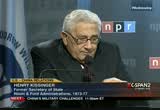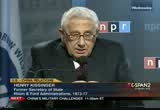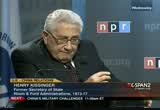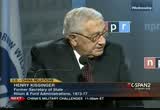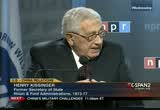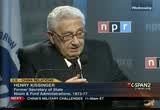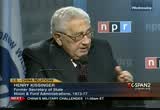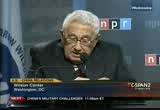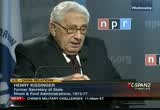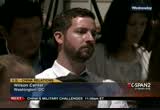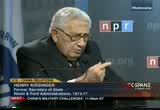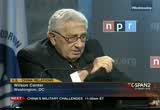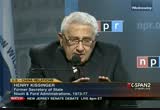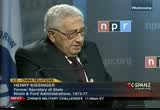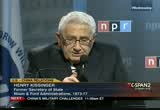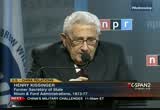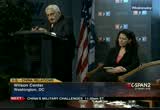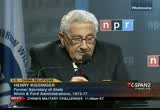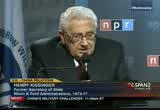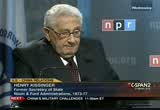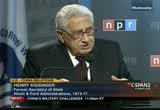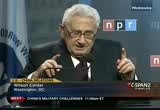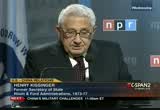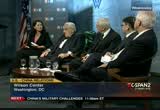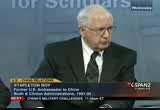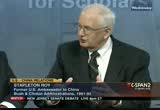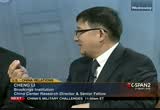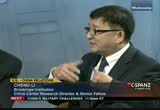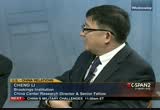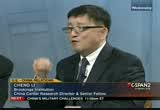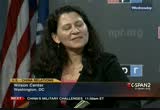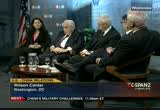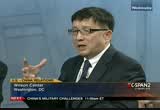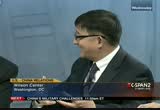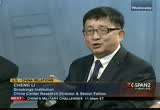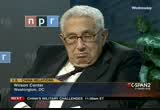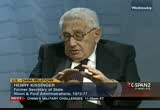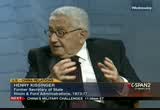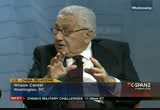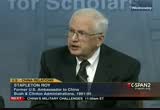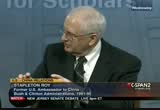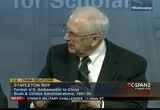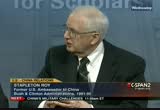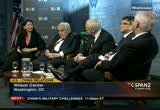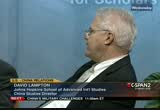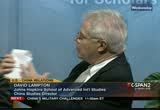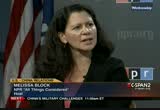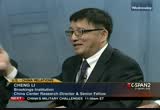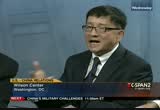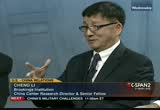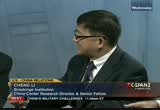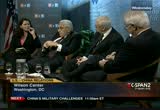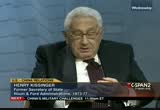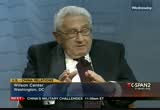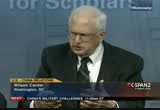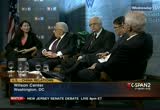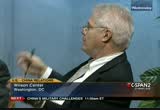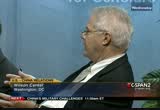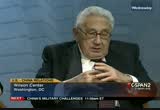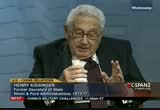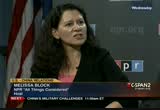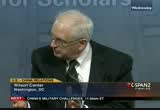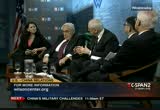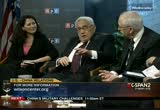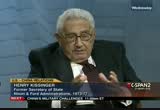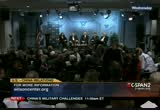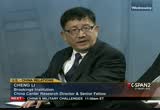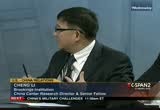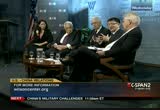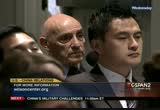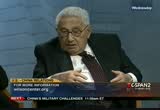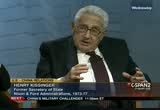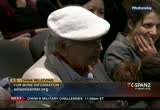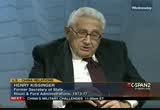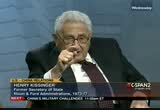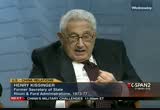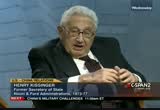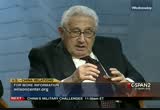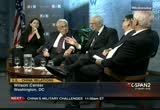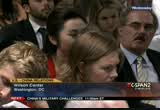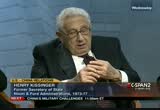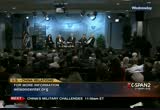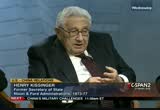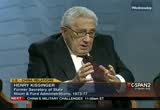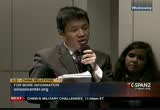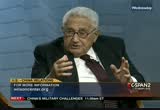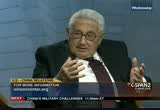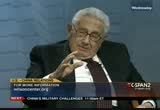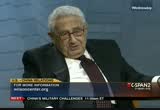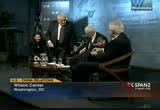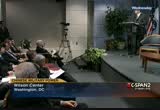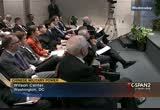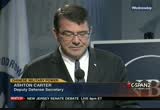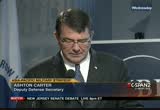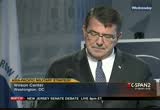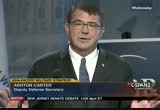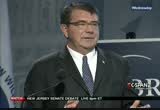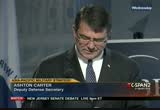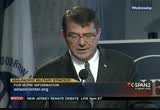tv U.S. Senate CSPAN October 4, 2012 9:00am-12:00pm EDT
9:00 am
come back and you know, fred's points are well taken which is for a lot of voters, the election started last night. if he is going to have a come back in ohio, it started last night. >> and fred and then we are going to open it up for the rest of you folks -- president obama one last time and beat senator mccain by seven points. now, part of it was you know, 66% of the vote among 18 to 29-year-olds, 67% of the vote among latino voters. african-american was like 95-4 or something like that and the poll has shown the african-american vote is rocksolid for the president and the numbers extremely high so lets let's just sort of assume rough parity with last time. but the question was, as you
9:01 am
suggested the turnout levels among latino voters and i would add young voters very much questionable and when i have gone on campuses i cannot find a pulse. you saw a registration table registered to voters. there might be a couple of people behind the table to register people and nobody in front of the table registering. there's there is just no pulse there. is it safe to say that a seven-point margin becomes you know, six or five or four? sort of taking turnout down among these two groups? just by necessity this was going to be a lot closer. >> look in 2008, the president had to win this back. a seven-point margin for a democrat is big. that is a historic margin for a democrat. no, think all of us expected this to be a closer race. i think charlie the thing we
9:02 am
should look for it now with early voting, we have metrics so one of the things that all campaigns on every side, and there are now more than two sides so every side is going to be looking. north carolina has a early voted half the voters in north carolina if not more will have voted before election day. you can track that every day. >> who they are. >> who they are in more importantly how many have voted so look, in campaigns from presidential down to city council every aspect of the campaign message turnout. i think the air wars are the ones that get all the coverage on tv but i think the ground wars will be equally important. look, i think the other thing about the electorate is at least in "the wall street journal" colin the nbc poll that the two
9:03 am
firms collaborated on it was pre-debate. you know the president was winning independent voters by 13 points. and, in 2008 he defeated john mccain by 8% with independent smacks so with the admonition of less -- let's wait until the dust has settled and see the polls in the next couple of days i'm going to be looking at the numbers in the other thing very quickly in terms of the minority vote. the other thing about barack obama's election in 2008 was the one something on the order of 43% of the white vote and in most of the national polls that is kind of where he is so that will be another number to look out for. the country is changing and in 2008, three-quarters of the electorate was white which was down from the mid-to high 80s 20 years ago and that number is going to change. and the question is in a very close election i don't think anyone thought it would get seven-point race.
9:04 am
i think they thought it would be a two or three-point race. the metrics are there for him to win. speak to me, and i'm sorry to interrupt but to me i wanted to -- to meet the most stunning numbers from 2008, if you take out the 29-year-olds and look at the 30 plus mccain and obama tied and that shows you how important the youth vote is to the president by the way that is why you are seeing air force one showing up at airports near major university in three states on a regular basis gus -- because they recognize it. the other fact is john mccain e. barack obama 55-43 among white voters. george w. bush in 2000 the al gore among white voters 55-43. the margin was the same so how did gore and bush essentially tied. you might not know this but was won that election.
9:05 am
[laughter] in the electoral college, kind of the cool thing in the constitution. but anyhow, so it years later what was essentially a popular vote tie becomes a seven-point blowout in that shows you how significantly america is changing. you know, fred talked about how hard it is for democrat a democrat to win with a seven-point margin. republicans can't. it's just impossible. for mitt romney to win the popular vote is going to be by a point or two. what that says is you know, if we don't as a party, republicans don't figure out how to do much better with minority voters particularly latinos -- look, african-americans is going to be hard to expect more than 5%f the vote for a while given that the current president is lack. so they are going to vote for him and his party. that is certainly understandable. republicans have to do
9:06 am
significantly better than we are doing right now into the future. we have to do significantly better with latino voters. >> i think it's fair to say that the republicans, you talk about a business model, the republican business model is not sustainable currently. it has to change. one technical question. when i look at various polls and i realize a lot of times the topline numbers look very very reasonable and consistent and then when you start looking at the split, it starts getting more erratic. and i think independent numbers all over the map and it seems to vary enormously from one firm to the next. is that how they word that party i.d. question? is that the position of the question? i mean i have seen polls -- i have seen polls in the last month that if -- romney had five
9:07 am
or six points within the independence map. there seems to be a lot of variation between firms. is there any reason for that other than the fact that when you start cutting it up the margin of error goes up? >> i mean, there shouldn't be that much variation. you know, when you are asking that question, i am thinking one of the explanations could be just even a couple of days difference between polls can make a difference. there is a reason why i'm like partisans democrats republican -- they don't think i'm a democrat and i pretty much know how i'm going to vote. >> my "national journal" collie, ron brownstein who is one of the brightest people around, he went through a lot of data in recent weeks and points to non-college-educated white women as a group that has moved some in the last couple of weeks. i know non-college-educated
9:08 am
white men are kind of a no-fly zone for the president but the women were more up grabs and they have moved more. have you noticed anything like that or is that a metric you are looking at? >> it is. i think that everyone talks about the women voters. there are a number of facts. number one is look, john mccain won white women by seven points. that is not enough to win, given what republicans have to win white voters by overall. but, when you look at white women voters, there are groups that are more likely to vote republican and those include white women without college degrees, women who are married and then particularly women who have children. the difference is between white women who are married and white women who are single, whether it
9:09 am
be you know, they are not married and they are widowed or they are divorced. those voters, those groups overwhelmingly go for obama so if ron is right and the president is making some gains with non-college-educated white women, that is problematic for our side. now i have not seen as much of a shift as you have noted. >> okay, let's open it up. we will go over here. yes, john. >> are we doing mike's? >> people say the choice doesn't matter that they are next up given what happened last night. it is important, the debate. is it going to mean that you know people are going to based on what happened last night, say yes, now i am for sure going to be for romney or does it have
9:10 am
that kind of impact do you think? >> let me start off, to me, i think we all agree this is going to be a closer race. and it in close races everything matters more. so, you know i think it will. i think historically vice presidential debates don't matter a whole lot. and somebody last night, can't remember who it was, was making the point that lloyd denson destroyed dan quayle. it didn't make any difference but he destroyed him. so i don't know but do you guys want to take a swing at that? >> i think there are two presidential debates after that one, so i think it will be more watched by folks like us in politics whereas i think the overall electorate and i'm not
9:11 am
downplaying the importance of the vice presidential but charlie is right, it could have -- anything could make a difference. but it would be surprising to me. >> it's like in the olympics when they had the basketball games for the bronze medal. waiting for the gold medal game, this bronze medal game but do you know what? is the only debate next week. it's going to drive some of the coverage. it will either continue the sort of the momentum that romney had after last night or it will be seen as his vice president biden does well it will be seen as this is the first step towards the obama-biden team getting its footing back. i think it's important. i think in the media world we live in now where everything is analyzed, instantaneously, even before it happens, i think it's
9:12 am
a meaningful event. >> important until the next presidential debate and then it rapidly becomes fairly irrelevant. i am thinking maybe we should have a disclaimer. this debate is for entertainment purposes only. [laughter] spin chicago this morning they are saying things that we have widened to pick us up after last night. [laughter] >> if in politics as in some other things first impressions are the most important and if in fact the average american really tuned in last night for the first time with that -- would that suggest that the next two presidential debates are less important? what is your opinion on how much the second and third presidential debates can matter? >> i think they are still very
9:13 am
significant. if you look at, seems like ancient history now but reagan's first debate against mondale did not go well and it turned around in the second debate. what everybody wanted to happen in terms of the voters, they wanted to reelect reagan because the country, things were going well and breathed a sigh of relief and nobody remembered much from the first debate. so i think it would be premature to say that he is done after last night. >> i agree with glen. i think the next two will be very important. >> i should've mentioned this earlier, sort of a disclaimer here. glen's farm is governor romney's pollster and fred's firm is doing priorities usa which is the primary super pac on the democratic side so besides just being a republican pollster in a
9:14 am
preeminent democratic pollster, everyone has got dogs in the fight. i have been very very critical of the romney campaign, the part that glen's partner neal has not been involved in other aspects of the campaign. i've been very critical and i think there were things that needed to happen and romney connecting with voters on a personal level needed to happen in should've and should have happened a long time ago. and it may have partially happened last night and so part of this may be doing some, getting some tasks completed the connections that probably should have happened in june or july or august are at the convention so i think there may be some lost ground here but i think the next two debates -- it's a really close race and it's now going to be a really really close race and you know everything is important. maybe you should alternate those
9:15 am
sides. okay, in the very back row up against the window. >> todd preston with the u.s. global leadership coalition. one demographic i don't think has come up so far this morning is 65 and older. could you talk a little bit about how you are seeing polls of that demographic change and to the extent that this election of paul ryan and his liabilities on medicare is becoming a problem for the romney campaign and perhaps even in some of the senate raises? >> who would like to go first? >> well, in 2008, if we just look at the seniors and the exit polls president obama lost seniors by eight points and then in 2010 midterm elections, with the exit polls aggregated the exit polls for the senate raises democrats lost by 20 which was one reason why --
9:16 am
and then looking to our nbc "wall street journal" poll the president was trailing seniors by close to the 2008 margin, nine points and look, i think that you know, i think paul ryan is a very smart person. i think clearly the romney team must feel he is a qualified to be president president of the united states. is a democratic analyst, to us it just sort of reignited the whole medicare issue because you know we have spent a lot of time and glen and i do senate and house campaigns, talking about the ryan plan. and you know, sometimes we talk about the ryan plan without saying the ryan plan because people didn't know who paul ryan was. well, now they do and now they
9:17 am
know there is a ryan plan on medicare. so in the polling we have done and i'm sure glen has done polling of his own, we see it's an effective message for democrats against republicans to talk about the ryan plan and the republican plan on medicare. >> before you jump and glen let me push back a little here. >> go right ahead. [laughter] >> a day or two before governor romney made his decision on running mates i was talking with stan greenberg, another democratic pollster and he runs a democracy corps with james carville and they have been desperately trying to use the ryan plan you know, to basically beat republican members of congress about the head with the ryan plan and with minimal success because of what you said. nobody knew who paul ryan was and as we were getting off the
9:18 am
phone, i think i said look, i will give you this. i don't think romney, governor romney, is going to pick paul ryan but if he does, okay we will have another conversation because it strikes me that democrats have not effectively made medicare and the ryan plan -- i have seen all the polling that shows how it moves people in polls. i haven't seen them really inflict a lot of bodily damage on republicans on the ryan plan, on medicare so far. am i missing something? has it had an effect, or not? >> the flip answer would be we will find out in 33 days. >> okay, okay. >> apparently we are going to find out in 33 days.
9:19 am
[laughter] >> the presumption in the press, not all the press but paul ryan what a risky choice he was. the polling i am doing now when i test both in swing states are suing districts, test joe biden and paul ryan's image. ryan generally, generally has a better image than paul ryan. if joe biden is the answer i don't know what -- want to know what the question is. look, senior citizens, republicans -- the nice thing is we have had decades of dealing with democratic demagoguery on seniors issues whether it be social security or medicare or both. so look we are well aware -- the first stage in a democratic campaign plan is minority turnout plan. the first page and the republicans is, how do we make sure we don't get heard among senior citizens so this is something our campaigns are very aware of.
9:20 am
we have messages that we have tested in response. yes it is effective. you test a democratic attack versus a republican response attack and basically it plays to a tie so i don't think it's going to be the game-changer for the house that the democrats you know, think that it is. the one thing to keep an eye on actually more than cedar citizens on this issue are near seniors, those 55 to 64 years old. seniors are getting medicare and getting social security. they know that the rug is not going to be pulled out from under them because there would be a huge price to play. the near seniors are the ones who are more concerned and more moving around in the polling so that is a group that we are targeting as well. >> okay, the near senior, let me pick.
9:21 am
>> hi. could you guys discuss the impact of voter suppression efforts on election results versus polling results? we have seen an increase in the past few years in mostly illegal voter suppression efforts since the recent conviction in maryland. but this year we have seen a huge increase in legal voter suppression efforts with, requiring photo i.d.s and such. how you account for that in polling especially given there are there are about 10 lawsuits pending now, or 10 cases pending now and federal courts or state courts that could negate some of the new laws that are intended to require photo i.d.s? >> first observation is in terms of that case in maryland, that
9:22 am
was one misguided example where it never should've happened. the race wasn't that close so it was a huge mistake by that individual and he paid for it with time in prison. in terms of your concern about voter i.d., having to show i.d., i live in virginia and i just got my voter card and did they allow anything like a utility bill or anything like that? it's a lot easier to vote in america than to get on an airplane so if you're worried about fraud, i think that -- these are feasible requirements. >> i guess in terms of polling, we tried to pull a registered voter list so there are registered voters presumably and then in elections we also try to sample people who not only
9:23 am
register but have voted in past elections. [inaudible] how you account for that? >> our caller has asked about the voter i.d.. not a lot you can do but some of these places as you have pointed out, they have been thrown out or if they have been basically put aside for this election for further litigation, but yeah for me, i personally have no problem with requiring an i.d. as long as number one, you know, the government makes a proactive effort to go to people who are qualified to vote, register to vote but you know, don't have i.d.s and you know i wonder
9:24 am
for example some states, why does an expired, and i will say this for tsa too, why does an expired driver's license not work? i mean, did your identity change because your driver's license -- license -- -- viewer 93 years old and your driver's license expired four years ago. what is the problem they're? and also that it's kosher. in other words, if a concealed carry permit in texas is allowed, then why isn't a university of texas student i.d. also issued by the state of texas not count? it is kosher and above and beyond that you know i don't think it's particularly onerous. most people in society do have to register. in nursing homes and institutionalized settings or other places. most people do have i.d.s and i think the government could do something to reach into other places and help people get i.d.s but that should be part of the deal.
9:25 am
let's go back to the center, yes. >> i am christine and i was wondering if you could comment on the format for the debates, the three debates and how you see that connecting with the two candidates. >> okay. we are speechless. first of all i thought the debate last night was pretty -- i was stunned at how the moderator, jim lehrer, let himself get walked over by the candidates in terms of the timing. it was like the two minutes didn't matter. barack obama woods along. when i'm about to die i want barack obama's five seconds because they lasted forever. [laughter] on the other hand, i thought it
9:26 am
was pretty good. there's so much policy in this debate. both of these people show they are very smart people and that they both you know can be president, won by virtue of being present in the other by virtue of -- i don't know if there are differences in the formats in the next two. i haven't looked that far ahead. but, i thought it worked out really well in terms of the back-and-forth. it was more of a gnat -- actual debate then a dinner talk or something. >> i think as they political follower like all of you are, i like to the elastic time constraints. i think sometimes in too many debates, i mean just let them talk. i don't think the format of the debate affected the performance of either candidate. it was what it was.
9:27 am
i think mr. lehrer did a terrific job and i thought it was neat that they were talking a lot. >> it was more british style than american-style. >> yeah, i agree with both red and fred and glen and i would say do i think the gym lehrer was a very weak moderator? yes, but that's okay because it's not supposed to be about the moderator and it was as if there was none and in some ways maybe that is the way it ought to be. it's about the candidates and not the moderator showboating it. i thought it was good. >> i'll bet you if you asked both supporters to romney folks would say obama talked longer and they -- >> president obama talked about five minutes or so. 4.5 minutes more than romney but i think romney's -- romney was
9:28 am
better. less was more. the side of the room, yes sir? >> my name is ben salisbury. i was wondering if you have seen in the close senate races any difference between races where the republicans are associated with the tea party and if not, maybe how turnout would affect that? >> that is, there are a lot of important races in november. not just the presidential and i think, i don't know the answer because what i was thinking was there were a lot of very close senate races that charlie was talking about in states that from my perspective that ron is probably going to win like indiana, missouri, north dakota, arizona.
9:29 am
probably more. there are four states where democratic senate candidates are running very competitively with republicans in republican states and some are even ahead. i just did a battleground survey in indiana with a republican pollster and joe donnelly was up two extra points. i think, and the other truism in american politics as people usually vote the party line. so you know, that is an interesting dynamic and that is in the next four and a half weeks, and i'm sure in massachusetts is a good example for the republicans perspective where president obama is clearly going to run very well there. canned scott brown withstand the blue tide fair and right now, the democrats are doing well. you have a tea party backed candidate in indiana, richard mourdock and richard luke are in the primary. that is a very tight race but
9:30 am
you have solid republican candidates. i was in missouri may be a month ago but in arizona where democrats are competitive and i think it just shows that one these races are still fluid. you can be and decided and we can say the race for president started with undecided voters yesterday. for some of these voters the senate race, it's going to be a couple of weeks before they really engage. the other thing that is going on here is, i don't know if people vote in races like a chess game but i do think you know, people pick and choose one from a i'll m and one from i obey. clearly one thing we haven't talked about is the fundamental dissatisfaction americans have with government and as they go from president incented and governor, how do they make those choices? >> look, i have to agree with
9:31 am
fred for the most part. the only thing i would add is if you look at indiana for example if luther had won the primary, indiana would -- i know indiana would not be on the map but that is not the way it is. it is a tight race in fred alluded to the fact that given obama should win that state, i don't think i would be shocked if the democrats -- [inaudible] the race is going to go down to the wire and there are a number of them throughout the country whether it is party related or not. >> my reaction is, and i could think of some exceptions but unlike 2010, the tea party movement is not really a top-of-the-line concern for me right now. murdoch is clearly identified in the indiana senate race with the
9:32 am
tea party movement. ted cruz from texas clearly associated without movement. i don't really consider todd akin in missouri, he is more of a social cultural religious conservative that precedes the tea party movement and i'm not saying there aren't tea party movement's out there although most of the tea party people i know before president obama was elected were known as very very conservative republicans so i am not sure many of these folks voted for obama in no way to suddenly became tea party people in '09 or they voted for john kerry in 04 or al gore in 2000. i don't really think so much on -- it's just sort of not a thing i am looking at quite so much this time. and to me it's more where you see enormously talented
9:33 am
candidates and fairly talented and okay and some that are not very good and how their campaigns are and whether they are catching on. for examples to places that surprised me our hawaii. i think former governor the republican nominee there, i think she is a terrific candidate. i think she is run a great campaign. i think she has done everything right and it doesn't seem to be happening. that surprises me. maybe it does and conversely in connecticut with linda mcmahon, you know my read early on was she spent $70 million in the best republican year since 1994 and loses badly. i didn't think she was going to have much of a chance. she is now running ahead. she is a better candidate and has run a better campaign. she has god a democratic opponent who has turned out to
9:34 am
be far more problematic and has some issues that a lot of those were not familiar with before and then finally i think women voters in this state that held the wrestling thing against linda mcmahon so much last year, they have kind of seemed to have moved beyond it. it seems like it's kind of old news and less relevant than it was. so she is running, mcmahon is running very well and arguably is ahead. go figure but the tea party thing is just sort of not something that is on the top of my mind this year. it doesn't sound like it is so much on yours. >> let's go to the side of the room. >> bill with stuart and stuart. i wanted to ask you about the 2004 knowledge he. you really haven't honed in on this because basic and we are headed for a 2004 election. the elitist windsurfing guy, the president had to find the opponent, not a very popular president. the president was more the man
9:35 am
you wanted to have a beer with. that changed last night at least for the moment where you know romney was the much more approachable candidate. the president was the professor. if you guys were looking at this and advising campaigns how do you for obama turn it back to that original dynamic of the out of touch elitist and how for romney do they continue down the same trajectory, which for the first time we knew he had a pulse as an individual. >> yeah, that is a great question. i think the thing that is impressive for president obama in the polls is just the likability factor and it's not just to see more a more down-to-earth than mitt romney? is the whole obama package, the family, the president and people connect with them even
9:36 am
anti-obama voters. look, i think that the hardest thing to do is to advise a campaign that has been running for four years and i don't work for them and they know way more about what they are facing than i do. my advice would be to, my advice to them would be very simple. look, i think he needs to close the deal. i think he needs to say it's not about mitt romney any more. i think what last night showed is the next four and a half weeks, it's about barack obama and i don't think they ever ran as if they had this in the bag. i know the analysts say obama, he was 20 points ahead and he put in the fourth string and now it is a tight game. which is why they started defining mitt romney before he was the republican nominee but as we head into november, their number one imperative is to answer the question, what will
9:37 am
the next four years be like? i think when they answer that question for the american people, which we did in charlotte, and we have done it before and we can do it again. i think when i answer that question, that is one he will win the election. >> but there is no question that obama, the president is well-liked and you know, there are also a lot of folks who don't care for him very much. but, you know a lot of people look at him and admire him. i admire him. i would love to come anywhere close to that. in terms of the romney campaign, charlie only told you have to story. i can't talk to neal newhouse my partner who is in boston doing the campaign and has been living up there since december. i am doing a lot of work for the
9:38 am
super pac so whatever we talk you can -- it will be about the red sox are the giants and that's about it. i will hold off on giving advice to the romney campaign. they have enough people giving them lots of advice. >> one reaction to your point about 2004, i thought that the obama campaign probably ought to be paying royalties to karl rove because i think they really studied that 04 race very very closely and on certain things applied it very well. for example you know, take one of your opponents most important strengths and turn it into a weakness. john kerry's war record as a weakness and mitt romney's business experience and turn it into a weakness and then you know try to appeal out the independent voters but after a certain point, don't blow your
9:39 am
whole campaign war chest going after people who may never end up going your way and instead go back and try to figure out how to inflate your turnout among your base using technology and microtargeting and datamining and all of that. i think the obama campaign has done extremely, extremely well at that. i think you know for if you are going to look at a model, that is one to look at in terms of the strategy employed in this campaign or at least on the romney obama, on the obama side. >> if i could add one quick thing. i kind of doubt that carl is going everyday to check his mailbox for that check. [laughter] >> yeah, you think that is pretty safe. >> we have got one in the middle. back over that way to that side.
9:40 am
>> will martindale at aarp. i was just wondering as mr. bolger said both candidates showed that they are qualified to be president last night but i was wondering if you thought that the demeanor really was the main factor last night as opposed to the actual message that they were saying and the actual their own facts in their own statistics and i was wondering if you thought that it was really all about the way they came out and energy they had or if what they were saying had as big an effect as the perception of how they are doing and how excited they are to be there? >> well, the first observation is clearly the aarp has lowered its membership age. it's a good thing you identified yourself. [laughter] no, look, i think the body language is important and i think the president hurt himself
9:41 am
with without last night. i don't think that the romney side should think that it's going to be like that in the next debate. that was not what we wanted to project but look at the same time, you go back to the tape and break it down like ron jaworski did with the football game, romney had a lot of good stuff and points that he got across and i thought from a policy standpoint, i thought it was pretty rich. when people are complaining that boy they got too much into in the policy into deep in the woods, usually the complaint is there is not enough substance and there is too much style so i think, i think from that standpoint it was a pretty good debate for the american people to see a lot or go for one i think both of them clearly, mitt romney became fired up and ready
9:42 am
to go as somebody might say and obama almost look like george h. w. bush checking his watch. >> i don't think we saw the same debate. i don't think it -- i don't think the precedence demeanor was especially whatever, checked out. he talked longer than mitt romney so clearly he was engage. >> no look, i think why the analysis of the debate is the way it is, from my perspective, not so much as the president -- he did fine. there were moments that he did really well and there were some moments where both candidates did well so i think in general he did fine. i don't think his demeanor, i don't think he was checking his watch. i think why last night was important was because of how well governor romney performed and has a political analyst, and not putting on my partisan hack, when you watch sports games you
9:43 am
can tell in football games of the team is running every play through the first half. then they try to establish the run. even i can figure that out. oh he is going to try to establish it. i didn't think he was going for likability. i think he was going for what his strength was and should be which is i am focused on the economy. this is what i have done. this is what i will do. i am focusing on the economy and to me, i thought from the moment it was very clear that is what he was all about. and he executed for the last hour and a half. >> it is sort of the a storm at -- historic norm that if you're democratic in a contested residential nomination you run to get your nomination back to the middle. and for romney he who ran unsuccessfully in l.a. for the
9:44 am
nomination he had been running to the right for basically four years and i think that it becomes like a condition behavior and this is pavlovian or something but where he was slow make in the turned back in heading towards swing voters, and i didn't really see him doing that effectively until his convention speech and it really really really last night. last night was, it really was the first time this campaign, that he struck me like the guy that i saw in 94 and the guy that was running, that ran and served as governor, that he was sort of that close to romney 1.0 as opposed to 2.0 or 3.0. and i tend to think that people, when you are not pretending to
9:45 am
be somebody else, i think you do a better job and i think this is romney and i think he has for a long time been pretending to be somebody else and has had a hard time getting back, sort of getting back to his roots. i think these are his roots and i wondered whether he could get back and he did. obviously a strong performance. there was somebody -- yes, sir. >> hey charlie chris nelson, nelson report. >> chris is a good friend. >> good to see you. speaking as an aarp member -- [laughter] a long-standing actually chris. [laughter] way past the minimum. "the wall street journal" had an interesting maybe where'd pulled i think it was just monday of people indicating that they were so tired of all this partisanship stuff and maybe unified government was a way to
9:46 am
make things work together. and that kind if it's a little bit about what we have been talking about, making yourself more appealing to independents and all that. is there any sense in thinking about how one candidate or the other could preach the patriotism of bipartisanship, the patriotism of cannot we all just -- or is that absolutely naïve and are we kidding ourselves? it was an interesting poll and i am interested in your reaction to it. >> well i think you saw some of that from governor romney last night when he talked about his experience in massachusetts where the legislature was 87% democratic and yet you know he worked with them every week and all the time and managed to get the health care plan passed with only two dissenting votes so i think, think you saw some of that from him. in terms of the kind of writer picture, americans you know and
9:47 am
this is not a knock, they generally want what they don't have which is when one party, when one party controls you tend to have elections like 2006 or 2010 where the party that controlled everything gets slapped down and then when you have what you have now where you have split control of the democrats have a third and the democrats have a third of washington you hear a lot of frustration people whose who's who say boy think we would be better off with one party control until they actually get it and they say be careful what we wish for. >> this and of the room. there is somebody not quarterback there. >> i am with the creative -- i just have to comment. last night my reaction to this debate was where where's the substance in turning around the comments.
9:48 am
is that a good debate? no one had any plans and i have to say the president didn't take credit for some good things he is doing. and my second question is, minority communities are very scared of the voter i.d.. i think it is being glossed over that as has happened over and over again in elections and i would like to see if you would comment on how you are pulling and if you are involved with any of the hispanic and black leadership about what is being done to make sure the vote gets out? >> i would disagree with the first part where i thought it was one of the most substantive debates i have seen in a while. you know, i was watching some of the leaders and when romney was going through his five-point plan, his numbers went straight up. i thought there was you know, i don't think they were. i think there was specificity and a lot of substance and --
9:49 am
>> it was the most substantive debate that i can remember in terms of policies in a long long time. may be the bar is set so low that it's not hard to get over it but -- >> a, i guess what what is substance these days, especially in the modern debate of communication? i guess my summation would be, you had a very good sense of these two gentlemen's philosophy and approach to government and you know, substance we will save for c-span. >> to the second part of your question i guess my reaction is that, and i say this as someone who was born and raised in louisiana, i don't think there is any significant voter fraud in this country, widespread organized voter fraud.
9:50 am
i think the bush justice department found 400 individual cases in the eight years so that works out to one case per state per year, which seems to me you know, fairly light so i think a lot of what is going on, i mean do i think a lot of republicans and conservatives -- do i think if you gave them shots of sodium pentothal and wire them to a polygraph machine and asked them, is there a significant voting fraud problem in this country i think overwhelmingly they would say yes and they would pass that lie detector test. i don't think there really is but i think there is some political opportunism taking place out there as well. and i don't really, i mean if glen wants to jump in the cam but i'm not sure i want to say something that will get them in trouble with folks in party debates. and i know john of "the wall
9:51 am
street journal" is sort of leading a charge on establishing voter fraud as a major problem. but to me it's kind of sporadic and episodic and a sheriff's race is more likely to be -- than a presidential or senate are u.s. house race. >> which race would that be charlie? let's talk about that. [laughter] >> it think it's sort of a solution in search of a problem but i mean i think a lot of, i think a lot of the republican concerns, i think they are very sincere but just we saw this florida situation, the florida republican party. it happens on both sides but i don't think, i don't think there is a huge problem but at the same time most of us need i.d.s to go about our daily lives and i think we ought to try to do something to get photo
9:52 am
i.d.s, official photo i.d.s in the hands of voters to you now help them get through their lives up to in and including voting but anyway. >> one last and then i'm going to throw a last question to these guys. >> talking about, looking back at the 2004 election, and the strategy that president bush and his team used, when you look at this cycle we know it's going to be a close race. what i see in the ground game is the obama campaign really thinking, really planning on the field a lot more than what governor romney campaign has. an example when you look at ohio, the romney campaign has 36 field offices where is the obama campaign has 96 field offices in the same thing in virginia and other states. it seems they were planning for a while but it was going to be a
9:53 am
close race and at the race and at the end of the day comes down to the ground game. how you move three to 5% of the vote out to the polls? can you guys talk a little bit about that? >> well i think our side's advantage was since january 2009, president obama pretty much knew he was going to be the democratic nominee in 2012 so he could plan for four years and i think look, i think we were all really happy with the results of 2008 but 2008's don't come every year. that was unique and i think they smartly recognized it would be a close election and they planned ahead. and i think in a campaign from city council to president, you have to do two things. you have to do two things well. you have got to win the message. that is what debates are
9:54 am
important and the strategy is important but you also have to win the ground game and the one thing they didn't do from the beginning was the ground game. you know we all know where the battleground states are and i think one of the great things in 2008 from the democrats perspective was how many new and different games were in the political process. the obama campaign clearly with the field offices in ohio. that does a good job of getting those people engaged. it's four years of activity and planning for basically -- and i think that is an advantage we have today. >> i'm going to turn to glen and a second but just to echo or maybe take a look and slightly worded differently than what fred said. i think that the obama campaign, we know they have got the obama campaign, we can't tell yet how good the romney effort may be or
9:55 am
maybe in may be in between. we don't know that but to echo something that fred said, the obama campaign has to have a better ground game because of the challenge i think they have motivating and getting young voters out and lets you know voters out. i don't think the ground game you know, it will be nice for the african-american community but i think the african-american community is motivated where they don't necessarily need the organizational method but for the young people and latino it is a challenge so it's essential for the obama campaign to have an aggressive ground game because those two groups are so important last time and are not going to be there on their own devices without a lot of motivational effort. so i think they have to. >> yeah i think that's an important point. a couple of observations. one is, you know i don't know how good the romney ground game will be. i do know it's going to be miles
9:56 am
ahead of the 2008. so from that standpoint, it's significantly better. secondly fred made a good point which is the president, it was in january of 09. he knew he was going going to be in a post or poster not seriously challenge went senator -- so they have had time to plan plan where's the romney campaign first they had to win a primary and that primary went on, the nomination went on for a long time so that kind of cut into organizational efforts but i think you are going to see the best republican ground game. i don't think republicans and i agree with charlie, the republican motivation is sky high so i don't know that they need quite the same ground game there. to me, the romney campaign's challenge or the republican side's challenge is more winning the message side of this than
9:57 am
the turnout. the turnout, the republican turnout is going to be pretty strong. >> we have got five minutes left and what i would like for glen and fred is to take your campaign strategists had off and as to really smart guys, really smart students of public opinion who have been a ching 104 -- >> 25 years. >> foray while. [laughter] >> it looking at and thinking about after the election and there are various permutations of what happens in a presidential race in a senate race and the house that are important but thinking about things that need to happen by december 31 in terms of thinking about things that may have to happen in terms of revenue and in terms of entitlement cuts and in terms of spending cuts, in terms of the megachallenges facing us between now and
9:58 am
december 31 and the first part of next year and any possible grand bargain. sort of, what are your, anything that is top of mind that you think of that is a challenge for either your party or the other guys or you know, just sort of wax on that for a minute or two each. >> i will quayle a line from the movie, it happens every so often they should be best picture that was not and a movie that did not win best picture that year. i don't remember the specific year but it should have one best picture and that was rocky three. [laughter] that was when the character was asked to write before the fight what is your prediction? and he looked into the camera, prediction, paying. [laughter]
9:59 am
so there are a lot of things that can happen with the fiscal cliff and the end of the year and everything like that and i don't think that either harry reid or john boehner know how it's going to come out much less met ronnie or barack obama so i'm not going to pretend other than it is going to be an all-consuming thing that frankly i don't think the public is ready for or has any idea is coming. i think no matter who wins the election, what happens between now and the end of the year is -- i should say the election at the end of the year is going to be very traumatic for the country. >> let me refine this may and maybe do fred first and then maybe glen. sometimes, doing something to entitlement and domestic spending, it's pretty inevitable and those are things that the
10:00 am
democrats are going to have to deal with and thinking about sort of the political consequences of that and on the republican side, there has got has got to be more revenue and defense is going to take some kind of a hit and that is going to be pretty ugly medicine for republicans. you know, fred if you were sitting down with harry reid and nancy pelosi and steny hoyer or glen if you were sitting down with mitch mcconnell or john boehner, or eric cantore and they are about to go in the room and get a lot of love on their hands and the ankle deep in blood -- not to be too vivid. [laughter] ..
10:01 am
10:02 am
listen more. but putting my fact had on what i would tell them is -- and i'm sure glen could say this, too, talking to people on the phone, talking to people in focus groups, i'm always very impressed as a few good american that when you get down to it to the american people have common sense. they may not like some medicine. like with my kids, none of the medicines of the pharmacy you put a sweetener and they have it all the time that they may need the sweetener, would fundamentally we all want to do the right thing. i know it sounds may be mr. smithish but don't have people like us in the room just think on the good common sense of the
10:03 am
american people. >> yeah, i think it's going to be one way or nobody is happy with what comes out. you can't be. if it was easy it would have been done by now. that's why they kept putting it off is it's hard. public opinion is going to be moving sharply, but as long as everybody is unhappy, then it's probably a good outcome. >> i want to thank fred and glen, the best in the business, and i take knowledge i think we are all -- i have learned a lot and have some new thoughts and ideas i've got from these guys and thank view, united technologies for sponsoring this and the national journal. this is just sort of a routine thing for a high-quality smart publication like the national journal atlantic media so thank you all for coming out, and see you next time.
10:04 am
10:05 am
10:06 am
tackle us. we need to save and strengthen medicare and social security, and we are putting the ideas on the table how to do that. we are not going to try to scare seniors we are going to save the benefits for seniors and in my generations of these promises are kept. they have laid out clearly, they say, that with barack obama and joe biden these endangered medicare. they stole money from medicare and they've done it to get obamacare. you see it in the ads. nothing can be further from the truth.
10:07 am
beginning november 8th china will have no communist party leadership. secretary of state henry kissinger and former u.s. ambassador to china stapleton roy talked about the upcoming 18th national congress of china and with the usher in in of new leaders means for the u.s.-china relations. this discussion hosted by the wilson center here in washington, d.c.. >> good afternoon. i'm jane harman, president and ceo of the willson center. welcome to those in the audience as well as those turning in the us c-span and live webcast. it's great to see -- i'm looking for him, ambassador jam sasser, former ambassador to china under president clinton. he was to be here with his daughter elizabeth.
10:08 am
i know we have the daughter here. ambassador wolfgang, the ambassador to the united states during a very tough important period in the relationship is here in the front row. he is also currently chair of the munich security forum, something i have attended for 11 years and henry kissinger has attended for many years and gave a wonderful speech here at the wilson center on the e.u., a u.s. partnership just a couple days ago. earlier this year the wilson center joined forces with national public radio to create this public series we call the national conversation. our hope is that this series will provide the public with new opportunities to engage in much needed civil discourse free from sin. let me try that on you again. civil discourse free from spin. imagine that in this election season especially the day before the first debate. in the safe political space the
10:09 am
wilson center provides. it is an honor to introduce my friend, dr. henry kissinger, who will be giving a brief keynote on the china's upcoming once in a decade leadership transition and the potential opportunity for the united states. after his speech, npr's melissa block will moderate a discussion. she will introduce herself some criticism about her. as a 26 veteran of npr and has been hosting all things considered since 2003 after nearly a decade as an npr correspondent. i said at monday's national conversation that in puerto rico's steve is the first voice i hear in the morning, and he is. while melissa is a very competent and informed female voice, which i hear in the late afternoon on my way home. she was in china preparing for a weeklong broadcast with npr when
10:10 am
a massive earthquake struck in may, 2008 and major news organizations around the world rely on her extensive reporting on the destruction and relief efforts. so now, i have many henry kissinger stories. i won't spend the full 15 minutes he demanded, but i will tell you -- [laughter] a few of them. let's try this. this past valentine's day he was my gate. well, what really happened is henry and i contacted our dear friends andrea mitchell and alan greenspan. we did this says separately about spending the evening with them and then we all ended in a downtown washington hotel room full of hearts and flowers. henry iain dhaka also sit next to each other at the defense policy board meetings and we just spent a day and a half doing that and discussing the very complicated issue of iran. at one of those meetings, henry
10:11 am
told me -- this is very personal -- that i was his jewish mother. my response was henry, i'm sure you had one early in your life and you certainly need one, so i accept. [laughter] not an issue comes up for me under world war ii for today and even maybe before that that henry can't put into a brilliant context will frame. for his world acclaimed book "on china," he used the wilson center project for much of his research. don't worry he gave us full credit. gas masks of "the new york times" said in reviewing that book, quote, henry kissinger was not only the first american emissary to come in as china, she persisted in his brokerage with more than 50 trips over four decades spanning the careers of some of the leaders on both sides.
10:12 am
diplomatically speaking, he owns the franchise. henry kissinger's name is on the door of the wilson center's kissinger institute on china and the united states, which is dedicated to his vision of the importance of improving the bilateral relationship between our two nations. that institute is headed by the legendary ambassador stapleton roy on the panel and the kissinger institute provides a neutral platform for constructive policy discussions on u.s.-china issues. the institutes signature project is a series of symposia on the comparative government. the latest of which was held up the wilson center in june on science and technology and innovation. the symposia, which the institute co-chairs foot china's state council, not only promote dialogue among the stakeholders but allow the participants to develop personal connections. the institute also recently released an initial report on
10:13 am
u.s.-china security perceptions, and other big project we are working on with leading research institutions in the u.s. and beijing. just last month we published the u.s. cooperation and clean energy and the review of the difficulties both countries face in developing solar, wind and other alternative energy industries and the potential room for cooperation. last november, finally, henry participated in another one of our national conversations entitled afghanistan is there a regional and gamecocks the story on this is interesting. he resisted when he learned we get organized a brilliant panel of scholars and reporters to comment on his remarks to the and we hadn't cleared the names with him. he didn't know all the people, and he was not happy. but he gave brief remarks and then he was warmly greeted by our own disk polish writer, and the rest is obvious. some days later i heard from him
10:14 am
as follows in his voice sometimes i know i can be a pain in the dot. we let him know the panel in advance and he approved of you all. [laughter] please join me in welcoming a legendary statesman, my defense policy seatmate and valentine's day date dr. henry kissinger. [applause] >> you know, one of the aspects of being a jewish mother is you can never please a jewish mother completely. [laughter]
10:15 am
but they also look after you. she has been a friend for a long time and it's a privilege for me to be here. you leave me in a position of the lady came up to me and said i understand you are a fascinating man, she said. fascinate me. [laughter] nonetheless successful conversations that i had. in this case these are all friends and teachers of mine.
10:16 am
i don't pretend to be a scholar of china. i have dealt with china for over 40 years now. i thought a lot about it. i have read a lot about it. the scholars have really spend their lives going into the details. my experience in china is the brezhnev experience of somebody who by accident was assigned to conduct the first mission to china. last because president nixon felt if he had been through regular channels he would be overwhelmed with a lot of technical details on subjects he
10:17 am
considered were not central to the immediate challenge and he could be sure i couldn't overwhelm him of details. so when i first came to china, i had an experience which is unique in this sense. every visitor to china would have killed for the privilege of meeting chairmen mao. i was terrified of having to do it for the reason that i knew that president nixon wanted to be the first policymaker who met mao, and i knew my life wouldn't be worth living if i came back having done the first photograph of an american with chairman
10:18 am
mao. chairman mao had given instructions that if i had a meeting with him i should be taken to him immediately. [inaudible] i achieved that goal of my visit. i've met of course each generation of chinese leaders, and each of them reflected the mission and the conditions of this period. mao was a revolutionary, a
10:19 am
10:20 am
soviet union. that was his strategic objective with great strategic skill. i had the good fortune that my opposite number was telling a lie. was prime minister, had served for prime minister for decades until he was forced out of office with four years after the opening. he was also of course of the revolutionary generation. but mao was elemental, and directly in the subject for
10:21 am
example when president ford said to him i always believe that you can disagree. i always say when you disagree, you don't actively disagree but it makes no sense in chinese. [laughter] why would you say that? [laughter] it was the most skillful diplomat that i encountered and a man of extraordinary ability to the intangibles of a situation and of course he was involved in many of the actions that mao was involved in in the
10:22 am
human suffering. the expert here that i experienced personally. when they started talking to the chinese, we had one period the only important subjects to talk about there were no trivial subjects on the table. there was nothing that need to be settled. there was no trade. even five years after the opening, the trade with china was less than the trade with honduras. three or $4 million. and of one of the reasons was
10:23 am
that while mao was alive and wanted as a strategic partner, she didn't want china to be repentant on the relationship of the world, and he insisted on maintaining the purity of communist doctrine. the conversation had been published, and it reads like the two professors of political science speculating in the abstract about the nature of international politics and because in fact the only thing talking about at that point was whether we could establish enough confidence between the
10:24 am
two of us to risk the ed venture that only china represented for both sides, for the chinese and the on theological point of view from the domestic political point of view, and even though the subject of president nixon to china was the reason why i came. it did not -- neither side mentioned it until about 12 hours before. i mention it only to say that a rule of foreign policy that i like to follow that i believe should be followed is getting your objective straight before you start haggling about the
10:25 am
details. we had no choice. now every generation since then was a great reform and i cannot think of another country where you could definitely say that the evolution that we have seen in the last 30 years depended on one man. i actually met no other chinese who had the vision and the courage to move them into the international system and engage in reform and institute a market system. the next leader came into office
10:26 am
in the aftermath of tien an -- tiennanman restoring china to the international system and making china part of the globalist system. hu jintao is the first leader bachelet to operate a china expert of a globalist system. with each generation, the style of leadership has become less personal. that is mao was treated reverentially almost as a deity. the appointments were never scheduled because of his health but he was suddenly called out
10:27 am
of the meeting and taken to mao without advanced warning and without it ever being told that you were going to see it at all and this was true of presidents and after missing the first meeting i had the opportunity to meet five times more. then hu jintao in this generation had the mission operating china within the international system working in a globalized structure. and now we have a new generation of leaders, and they have their own challenges.
10:28 am
for one thing, many of them including the vice president who will soon be president and a sense of victims of the culture revolution the fathers were the victim, and the victim's mind that they were close to mao with courage, disgrace and sent to the countryside. one of the attributes is some of the victims were pulled out of the countryside what mao needed them in the sense of nationalism of the chinese. when he became concerned about
10:29 am
the soviet threat, he pulled them out of the countryside and abroad than and said write me a paper on with the challenges are so some of them -- therefore they are coming together with some people who may have been in the red cars who were the instruments of the revolution. but most when mao was in the countryside so they had the common experience of this which creates one perspective on the
10:30 am
period but also gives them a sense of having experience of the trials that one can imagine and its different because they have seen both of the challenges of the rule in the suffering and they have come out of it now in the leadership. they are fighting a huge profits. the transformations over the next ten years they had to move 400 million people from the countryside into the city's which is a huge technical problem of infrastructure.
10:31 am
but even more than that, they know they remove some of the values of the countryside and the new values whether it's the role of the party but the confusion as on in forming these values. i think it is an unsettled issue that will occupy china the next ten years and it is a generation that has the two attributes one is the one child families so
10:32 am
that it's already a strong chinese obligation for a family to do well and it's magnified when all of the hopes of the family concentrate on one person, but it also makes and prevents and obliterate some of this in the china society so attractive. and also the younger generation that's the first one in hundreds of years that has never experienced disaster. i must say some of these observations i've learned from chinese leaders. i mention all of this to
10:33 am
indicate to deal with china it's in many respects the fundamental problem of american foreign policy, and the difficulty is our history and chinese history are totally different. we were secure in our country and in the impact of the foreign society and china has always, the chinese state has always been surrounded by the states in the management has been a principal of necessity of chinese foreign policy and we have dealt with problems on a short-term basis because that is
10:34 am
our foreign policy. the chinese have always learned to take a long strategic view in the outcome of any one in a longer term but in these societies in the different approaches now have to deal with each other in an evolving situation. china is now a rising country, and the status quo countries similar to germany and a england , and therefore the likelihood is something like that might occur again but china
10:35 am
is not a rising country, china is a country that is returning to what it believes it has always been mainly the center, but it's inevitable in the united states. but there are a number of things we need to keep in mind with respect to that. one even the country between germany and england was not inevitable and you can trace many of the missteps that produced a conflict, but be that
10:36 am
as it may have been for germany and england we know that none of the leaders that started world war i would have done so had they known what it would look like four years later. they let themselves be threatened into conflict on the basis of considerations in terms of the tragedy that they brought about, so therefore i think the conflict between china and the united states would be a disaster for both countries and would be impossible for the stride with the victory would look like, and requires on both
10:37 am
sides patience and understanding of of all that they are trying to reach in each country and domestic pressures that emphasize the disagreements that might be cheated in the political campaign in which candidates are using the language about china which i think is extremely deplorable. and you see it in the chinese literature from their strategic centers in which the strategic analysts are in a very nationalistic line, and indeed is the traditional communist ideology diminishes there is the prospect that nationalism
10:38 am
becomes a substitute. many of the issues that arias of the path of its overcome that we need to overcome the so-called dotted line in the south china sea was done by an emperor who had never heard because the concept didn't exist in the years ago, so the issue of the islands when there are hundreds in my view first of all separating the notion of freedom of the seas from the issue of sovereignty and the islands and my colleagues here will be able to get a much fuller explanation
10:39 am
of the issue. both sides had to make up their mind that they are trying to do something that is historic the unprecedented that the competing countries recognize the international system requires a degree of cooperation between them if they are not going to drift into a confrontation that will then split every other country to participate each side will be able to list the mistakes that the other side has made, but the one favorable thing you can say is the most nonpartisan foreign policy in america today is the chinese
10:40 am
policy. the american militarization since 1971 has pursued a same course on two occasions new president's tried to reinvent the policy in the maximum period of time was two years, and then they reversed it from experience the necessities of the future, so i am very hopeful that this will be continued and the relations with china now good with many grievances on both sides, but the basic objective is recognized by both sides. what we need to do now is to
10:41 am
find something which we can change and cooperate not just mitigating problems that it's done on both sides of the atlantic that is the best minds of both sides on some common project so that we don't have to read about each other in terms of the literature that we now see on both sides that describes the other one else failing. that is our fundamental challenge. i felt i would begin by saying i is asked to enable you in that historic occasion. [laughter] you have not been present at the historic occasion but i do want
10:42 am
you to leave with a feeling that it's tough and there will be the assessment in the areas of the situation can clash. we americans have always had the view that we didn't matter on any country to enhance that included the view of those of us in the relationship. the chinese feel they can understand that objective not only to be pursued in the military. so it is for both sides to recognize asia and the world in which we may not have the same interpretations but which we can
10:43 am
not only coexist but cooperate on important projects, and i think peace and stability of the world depends on that. [applause] >> thanks to everyone for coming and all the panelists stapleton roy and henry kissinger and jane as well. all things considered on npr i have an interest in china and not that -- i would like to follow with the the panel. we will talk for a while and there will be time for questions from the audience. i would encourage you to think of things you'd like to ask. i would start though with the fact of china's disappearance. he was missing for two weeks
10:44 am
missed an appointment with other foreign leaders and no one knew where he was. maybe he had a heart attack, no one knew. also consider the discussions that were worthy of costello something like where is she, who, no, she is missing. when, no, not when either. so where was she in how do we interpret the fact that the next leader of china when they were missing and no one seemed to be able to tell us where he was. ambassador roy? >> you can probably guess this better than i can. my experience is this, transitional chinese media did not talk about the personal lives of their leaders. so if a leader was ill, nothing was important about it. i remember when lee hung
10:45 am
disappeared in 1995. i think it was the spring of '95 for the fall of '94, and he simply wasn't there and there were no reports of the media about what happened to him. it later turned out that he probably had a heart attack or stroke. and in the meeting that i had with him a short time before he disappeared, she didn't seem to be behaving quite normally. but this is not unprecedented for a leader to drop out of sight. but in those days people didn't report the leaders said they were either there or they were not. the problem now is you not only have the mass media in china with instant access to information, but china is part of the world in which the leaders are accountable for where they are, and i think the people who handled the absence simply botched it. they needed to be saying
10:46 am
something and they were not in a position to say something in the that produced a lot of on helpful speculation including bizarre stories that no government would want to be suspected of harboring. but you may have some insight. you may have been west chung lee for all i know. [laughter] >> before i answer i want to see something personal just like jane. i want to say a few words to dr. kissinger. as someone that grew up in the cultural revolution as you empathize the remarks the generation of leaders will take over the power in the revelation generation. for this extraordinary generation of the very name of
10:47 am
henry kissinger and body was done, diplomacy, respectful culture, but most importantly, who, hope for an open china. hope for a better u.s.-china relationship. so the market is ringing fourth the sentiment that you expressed. now the opening china that you and president nixon made in the early 1970's was not only the point in history but also then has changed our lives for millions of people and chinese americans. thank you very much dr. kissinger. [applause] lampton one of the things that you have talked of is to misunderstand the chinese
10:48 am
politics or develop a broad vision. we have to have a deep understanding of the chinese policy society, the political system and also the continuing confirmation. let me come through with the questioning that you had raised. i'm really disappointed not at this point with the chinese leadership, but rather with the foreign communities and the social media upset with this. it's fair to say that the chinese government is focusing and said several times and the press conference including hillary clinton and the people that.
10:49 am
so i think that is enough for because more importantly, i was interviewed many times by the media, and they asked me to come and i said i do want to come but nothing is happening. if something happened you would see to things. one, the leaders would take trips. you will also see the size of the security and the military would act. there is no sign whatsoever. but most importantly, and it seems like the chinese government is opting most for transparency. but also ironically because dr. kissinger mentioned earlier
10:50 am
and one of challenges. a successor would immediately announce the public. you cannot cover because it is a huge liability would further damage for the political system. no leaders would be able to do that so you will reveal to the public of the 12 hours or so. so i think this should be a lesson for us. as china becomes a major power, the need to follow to be more responsive, but in the press conference they got back into it. people said he is transferring and also paralyzed. i just wonder these experts, these people should be
10:51 am
embarrassed. >> i do think that there is a serious lesson here however, aside from the management. you raise the question if something were to happen to the designated successors designated for a number of years with this plan be? what is the constitutional process clacks what can people have confidence in the continuity of leadership? and so as inaccurate as all of this i believe there was a hell of the incident that is the explanation. but the fact that this can have ramifications tells you something in order to the institution of the system, and there i think a lot of thoughts deserved by china itself and by those who do business with it. >> let's talk about the generation of leaders coming in
10:52 am
from the fifth generation of chinese leaders. what we know about the men that were presumed to take over as the president of china cracks the decade younger than hu jintao about ten years difference. dr. kissinger mentioned the experience in the cultural revolution, and i think he ate more bitterness than most during that time. what can you tell us? you've written about the different generation of leadership that these men present. the one to start? in the chinese media it was the culture of the experience. both of them were sent to the countryside where they worked with a farmer for 50 years.
10:53 am
it is an extraordinary difficulty in the city's to the countryside. the very difficult life experience for the important trade which defines the beavers. i can have a few words for that. enduring, about devotee, confidence. i think it's important to know this generation. in many ways also the study in college and at the end of culture for most of them this early 1980's was the most liberal period in china's system was exposed and the ideas and they actually have the constitutional development in the foreign country in the u.k.
10:54 am
and elsewhere in to chinese he reads english very well along. now that is a wonderful opportunity, and this also could be a problem because they would fail to understand. this is a generation because of their personal experience they don't want to be lectured. they would be more conducive to give more reasoning to talk to the corporations but use force to intimidate them acting very strongly. i hope what i said is important that if we use force coming use just a single-minded lecture with that knowledge of china and the difficult china experience we will react very, very strongly than the generation,
10:55 am
the hu jintao generation. for i don't know if you've watched the interview. this is 15 years ago and 60 minutes michael wallace points his finger he wore a dictator. he says it several times. they say how could you not react? but now people saw his approach was very smart and would make michael wallace embarrassed. if you do the same i think would be disaster. they would act very strongly. so we do need to know this mind set, this kind of experience. so that is why henry kissinger said early on this so important to look at the defining moment
10:56 am
and shape their view of their behavior for cooperation. >> at the g7 during the cultural revolution of heart in this generation of leaders. how does that bear out in how they view both domestic policies in china and the relationship to the world or is that not the key factor between how they see the role cox >> they cannot know yet because they are not yet in office. there have been instances they've made a very sharp response to that i've had several conversations with an extraordinarily subtle person
10:57 am
raised a number of philosophical questions. if you look at the appointment it stated in the next ten years you know that china will undergo the enormous changes. i think it is unlikely that in ten years the next generation will come into office with exactly the same institutions that exist today and precisely everybody knows it's china it is being discussed everywhere i do
10:58 am
not believe the great foreign adventures and consultations with the united states can be on the agenda. they know the domestic changes in the sense of moving the population overcoming a country in which the course is highly developed. you cannot keep the society operating indefinitely. so those alone and in my experience each leader is very conscious but i believe he had to make china acceptable he
10:59 am
would not accept that as a necessity. on the other hand, he has a long history now to look back on, and i found him to be reflective and quite philosophical. >> ambassador roy let's talk about your time in china. as we see soon after tiemann and square with how they are heading into the party, the conference and the overturned and the leadership how would you describe what is different now compared with then?
11:00 am
11:01 am
wasn't until the trip that unravel the conspiracy of silence around what he was doing and there was a sharp shift six months before the party congress to reform and openness. at the fourteenth party congress the conservative group that consolidated their position was ousted from the party and china went on to a strong reform in resumption of those parties. we should learn some things from watching this. the first thing is we were in the middle of an election campaign. candidate bill clinton was comparing beijing to baghdad. this was right at the time when china was moving from baghdad to paris. maybe i am overstating the case but that is what was happening.
11:02 am
it was a dramatic shift in china and the u.s. government paid no attention to it. it has no impact on the policies of the clinton administration when it took office. if i was the american ambassador in china this confronted me with the problem of an american government with one view of china but china was moving in a different direction and that created some contradictions in trying to carry out my instructions faithfully. this time you have some echoes of that. clearly the fourth of july affair has exposed china's political system is not different from others. leaders struggle for power. they have their own ambitions. some succeed, some come crashing down as in the case of li. we should not just assume it is anatolian -- authoritarian
11:03 am
system of government but what takes place in the political system is not taking place in china and this could partly explain why the announcement of party congress was delayed. no longer do you have an all-powerful leader behind-the-scenes who can put things in place but the powerful and ambitious leaders have to work out their own motives and that takes time and isn't always successful but they established a reasonable unity within the leadership going into the party congress and we are likely to seek -- n -- not confront any m surprise. >> current leaders operate by consensus. >> i will get to cheng li in a second of the don't expect surprises from the party
11:04 am
congress. is there anything we should look forward to? it is november 8th. two days after the election. coincidence? they leverett timing? should there be anything surprising emerging from their? might the standing committee be smaller? >> we were talking about rumors earlier in the context, certainly a basket of rumors floating around the composition. didn't have anything to do with our election. china is a big place with many competing forces and pulled a meeting probably the u.s. on the side of a minor concern that may have affected it by a day or two so there could be some idea of the outcome and the most important relationship in the world but fundamentally this got the sided out of an internal logic and looking particularly at the united states. my own personal guess is if you look at the pool of people that
11:05 am
are eligible to be the next standing committee at the politburo we may have some difficulty deciding which fish get pulled out of that pond. it is revealing to look at the fish in the pond. the totality of what they are choosing and what we are looking at is a more diverse group of people in terms of their education, business, even humanity to some extent. we are looking at a much broader generation. we are looking at people -- an enormous experience along china's coast. most of mug -- cosmopolitan community and leaders visiting this city so we're looking at people and experienced in the world. i expect when we look back in history we are going to say there was a surge of reform in
11:06 am
1992 after tianmen. then john demint pushed china into the world. we will look at hu jintao as a period of consolidation and we wish to tackle for the -- since the mid-1980ss political question because china's society is fundamentally changed. less dominant leaders. it has a more pluralized society and resources scattered among social organizations, corporations with their own independent power. i think we are going to see a new push. don't know how vigorous but in the political direction and i think we will have more cosmopolitan leaders compared to the past. >> let me ask cheng li. to rise to the top of the chinese hierarchy what would give you the confidence that
11:07 am
they would be pushing in a new direction as opposed to maintaining the status quo? >> some history -- new policy. they want to provide new vision. economic and political policy. they want a new legacy. colleagues -- we are not going to see kind of a spread -- united under the regime is so overwhelming. some people have reservations whether or not -- that also advises as i mentioned very important -- people already competitive about tianmen but some of my friends in china think the biggest surprise ever being the history that is still unfolding. i just read online a couple days
11:08 am
ago, a quick mention -- it is who is the leader whose specialty -- the death penalty, and one side. not just before she died. it is about tianmen and the same thing. this is important because it reveals the crisis revealed -- how the system allows this kind of ruthless leader and minister of commerce -- awful power abuse. the interesting thing is comparing tianmen -- chinese society and chinese economy have not been disrupted in waves --
11:09 am
exactly the reason that i want to highlight -- very important in china like the middle class and the legal profession. the country only has several thousand but each year china's law school, and students. [laughter] >> closure like the media dynamic and interest group policies and interest groups. none of them existed in 1989 in thailand. these provide a stabilizing force for peace and a party needs to transform itself before too late. there is a serious discussion in social groups talking about the legitimacy of chinese economic policy. how this happened. how it could be possible.
11:10 am
nine members or even higher. the position would never stop. that is very important critical moment china experienced in that conjunction of history. in a way the answer of your question is does leadership and confidence in many ways they also stand at the ability domestically but it is unclear whether they will really transform the party because it is a very complicated process. you need to change the verdict and deal with ethnic issues and you should also again all these kinds of issues and china's economy we haven't talked about, slow down. this is a result of the
11:11 am
political bob black but on further review fundamental problems of the system like corruption. it is the really big challenge. the community like us, you should have deep understanding of the difficulties china is going to go through but i am optimistic. i think the country went through difficulty and not so much on the leader but the society including some of the rising stars at the provincial level. they understand what we should do to change the political system to make it more transparent and democratic. >> anybody on this stage envisioned the transformation of the party cheng li is talking about in the foreseeable future or at the provincial level? not the level of the central government? dr. kissinger? can you imagine what cheng li is talking about? can you imagine the
11:12 am
transformation he is talking about how the party is to transform itself and in overreaching ways? >> all of it have seen, in china, 40 years and especially since the reform movement. each of them think of china as a dictatorial government, a 1-party state. a totalitarian government. and before its final estimation. i think it will be more transparent. its legal system will be more predictable. it has huge adjustments to make. china should export less and
11:13 am
consume more. partly an economic question. it is fall so a huge chance formation -- transformation of society. there will be less dependence on globalization. all i am saying is i can imagine that. the next ten years will be extremely complicated. that demand -- expect that will make an inference with which we are more familiar. it will be a chinese version but it will be more transparent and it will not be achieved without some domestic difficulties. we have to be sensitive to what
11:14 am
is emerging and different from what it is now. >> is there an opportunity -- >> i completely agree with dr. kissinger. stop and think about it. the communist party after the fourteenth party congress through the sixteenth party congress is out the window. the classic nature of the communist party throughout the window of fundamental principle of marxism. all of this was done and most americans didn't even notice it happening. people still talk about china ruled by communist party. it is a man in party but not the communist party as we understand communism in the old sense. china is facing what the premier of china says is an urgent need for structural political reform, fundamental structural economic reform in order to deal with social problems generated by
11:15 am
china's rapid growth. why is the premier saying this if he doesn't recognize china's current system if it doesn't change is not going to be able to deal successfully with problems generated by a country that is still remarkably open to the outside world, growing at a destabilizing rate of growth even with the declining groceries and changing social the and in terms of income levels dramatic fashion. so what dr. kissinger is saying as i understand it is we should anticipate change, not anticipate no change. saying when it is going to happen and what its nature will be you have to be able to see the future and with the exception of dr. kissinger the rest of us are challenging that area. >> david lampton, if the goal is to anticipate that change what is the role of the united states
11:16 am
and what opportunities might be there as china continues on this path of some sort of transformation? >> on the last topic two words. we have the example of taiwan that had the falun gong party in charge for many years and the leninist party which the soviet union helped organize. it essentials removed from the bottom of society to the top gradually incorporating more elements of society and move from inside the party to the society we now see as democratic. i think the chinese on the mainland have looked at that model and i expect to see the party change from within. procedures and its composition already changed enormously. gone from sixty million the last decade to eighty million. much more diverse party. some people limit the number at
11:17 am
the minister level that are not even members. you are going to get change. the question is what can the u.s. do to facilitate it. we have to recognize china's own dynamic and internal momentum is so enormous but china's natural resting place is to try to deal with its own problems and therefore i don't think we should make -- duiker's attention from dealing with its own internal problems to try to confront a more hostile external environment. continuing to in gauge, finding areas of cooperation and areas like energy keep our markets open the don't create a more hostile external environment.
11:18 am
important we keep balance in the region. there is a fine line between balance and provocation that we want to stay on the side of balance and a constructive environment. >> dr. kissinger. i was surprised to hear you say comments by both candidates. the term extremely deplorable language about china. you have endorsed mitt romney. have you had that conversation with him? have you said i find your comments extremely deplorable? >> i have seen the appetite of two candidates competing with each other on how to deal with a strategy. both have achieved as applied to china. >> and trade. >> and it may be in china -- i am positive of the fact that
11:19 am
appealing to china had taken part of the view on china policy that is not a secret. doesn't affect my basic intuition. >> mitt romney has talked about labeling china a currency manipulator. would that be productive? >> maybe it would be -- the romney campaign does not change. >> i will take that for a no. >> i have stated my view. i remember the reagan campaign making statements which i didn't
11:20 am
think were adequate to the overall relationship and clinton did the same thing. i have confidence the men in office, a president looking at the realities and come to the conclusion that i have all the colleagues here to agreed -- really amazingly little among the community of people who deal with china. there are those who have other views. they haven't actually studied china. >> one last lightning round question before we turn this over to questions from the audience and go big and go long. give me a time frame for how
11:21 am
long before we see open national elections and the end of the 1-party state in china? david lampton. >> i don't expect to live to see that they. >> i disagree. i think that the future generation in china will have difficulty understanding of the preceding generation. i do believe china will be very rapid -- in the next ten years. >> ten years. ambassador li? >> too pessimistic. >> dr. lampton will live. [laughter] >> this is reflecting dr. kissinger's optimism about the future. i am a little more cautious than
11:22 am
cheng li whether it is ten years or 15 years but the pattern in asia has been that countries that have been able to sustain rapid economic growth for 40 years have moved from authoritarian systems to representative forms of government without conception in east asia. we have south korea and taiwan and thailand and indonesia. thailand shows you do not revert back. china's period of rapid growth beginning after the fourteenth party congress beginning in 1992. we are only 20 years through that process. we have already seen the forces that want change for representative forms of government operating in china. operating within the communist party itself but sooner or later will have to spill out in a broader way.
11:23 am
this is independent of the will of china's leaders. their generating social forces that they have to supports at enormous cost. the question is can they accommodate them under conditions of stability so they can continue growth and we don't know the answer to that question but my sense is china's fifth generation leaders realize this is the challenge they will be facing. whether it will be they do carry china into the promised land if you will, for the sixth generation leaders i am not quite sure about. i would bet on the sixth generation of leaders but it could happen earlier and there is a possibility it won't happen. china's record has been pretty good at keeping the country on a
11:24 am
positive track. >> i agree with what has been said. china is moving in that direction. it was implied in some of these. that we know the answers to all the questions and that it is our mission to make the world exactly over in the american image. china has conducted itself for 4,000 years as the most continuous state. a staggered through 3800 years without assistance from the united states. [laughter] >> we should not assume we know what the answer is. the direction is more openness but we also have democratic problems and the problem of how
11:25 am
you reconcile conflicting interests and i think we should be open to the possibility that china will develop--not exactly the ones -- has a country -- we have to learn when you conduct foreign policy you have to deal with interest and well as values and you have to reconcile the concerns of other countries with your own concerns. otherwise it will not be possible to build a system that is a national challenge for the united states no matter which party is in office. >> i want to turn this over to questions. we have a microphone in the audience? one on either side.
11:26 am
introduce yourself and tell what organization or school you are with and asked a question. if you want to direct it to someone in particular goal ahead. we will start on the left. the microphone with the green shirt. >> i am with thee fair observer. my question is you talk about the fifth generation but talk about all of the 55 generations where people are appointed, talk about the transfer of power has been anointed. basically that has been finished. are we going to have new rules on how this situation -- the sixth generation or seventh generation. new rules within the party and how the succession will continue? >> talking about internal dynamics in a culture of the party itself. cheng li. >> the game will change. the game is changing.
11:27 am
really it is motivated by a vision and assessment that the previous model is manipulation by retired leaders is coming to an end. therefore you reach out of habit for support for this -- makes the campaign. maybe you can argue it is too premature but other leaders doing similar things, ideological and policy agenda or taking for right approach. because losing behavior is dividing the nation and so on. i think we sense right lead that it is difficult to select a leader. the chinese system should open
11:28 am
up and find a new source of legitimacy. not be immediately one person one vote. this is not feasible. but the interparty democracy. in the party congress, and the delegates selected for them but 370 -- also 370 members at the committee to select the politburo with 28 people on the ballot. limit to three. this kind of vote can limit systemic members because of the politburo. when you go through that you really on the one hand are changing legitimately. you legitimize the faction politics.
11:29 am
if you fail then also will cause the serious problems undermining further the political system. considering that there are reasons for the delay not just about the candidates of the standing committee. they are not reliable because of news of the election methods and -- that is the issue. you are absolutely right. the game will change. and future leaders will be different. >> i see a lot of hands of. to the right. yes? >> former student of dr. kissinger. i wanted to ask my old professor whether he is disappointed at all that after 40 years of generous engage and from the west we still see the hostility
11:30 am
and suspicion of communist leaders toward the u.s.. >> her don't find hostility on the part of chinese leaders. i read the writings of chinese think tanks that express suspicion of the united states. i am not disappointed. i think it is inevitable that tree to great society's from such different frames, the path will not be smooth. i am sure that if there were a chinese meeting the same
11:31 am
situation could anticipate american leaders but i am glad the chinese are even more so. fishes a gradual process. it can be overcome with finding projects with which we can engage the jointly. a mentionei mentioned energy. it is an environment for issues that can be solved by cooperation between china and the united states. complete consensus. i have anticipated and others
11:32 am
have participated in many conversations that indicate that it is possible to have such a dialogue and also that the alternative is going to lead to results in my view but the drama of world war i. >> the man in the hat. the microphone to the middle. >> i am with the national advisory council foundation and reading dr. kissinger's book on china. on the paging out -- i sense that one of the reasons might have been very close relations
11:33 am
with you and 100% agreement on proceeding with everything that you wanted to accomplish on behalf of the total policy that china and the u.s. pulling at that time. in other words taking care of the soviet union's belligerency towards china. >> the question is -- >> a factor in these political -- >> he was accused of the special
11:34 am
in conversations that occurred after 1973 too agreeable to the united states. based on a complete misunderstanding of what this question was as i understand it from various sources. on leaving china, what china -- the same sort of dynamic communications with the white house that the soviet union already had established a hotline to the white house and established that with the soviet union in order to prevent accidental -- simply for the sake of symmetry. i propose the same thing. it was not a big deal from our point of view. it was a sort of thing you do at the end of a meeting.
11:35 am
my reading -- there was a line being established to the prime minister and if the prime minister had indicated we didn't care, the top leadership in mind of separate -- anyway mao wanted to have nothing to do with any nuclear discussions with the united states and every time it was raised by other people he misunderstood it from our point of view. otherwise, phenomenal that mao read the transcripts of every conversation at the end of every
11:36 am
day and we know that the next d day, we would get an answer but sometimes directly by mao. for example i took it to china before nixon's trip. before nixon's trip because i thought it was too dangerous to leave -- to communicate openly that only two heads. i came with a trap. so at least accept the discussion at the next stage, with a scorching reply from which i happen to think was correct which was if we simply
11:37 am
communicate the usual type in which everybody seemed to agree with everybody it didn't mean anything and he came up with a proposal that we should list all the disagreements and list five agreements and those agreements would mean something. i mention that only to show that it was closely excepted that it never could have happened that he freed himself and which will be made. it was to complicate the factors including the fact that mao at that moment was confronting the gang of four. expectation being affirmation of
11:38 am
its own imminent mortality and that he wanted to insure the continuity of revolutionary leadership. those were the principal reasons of his demise. >> you are the master on the subject a narrow lead but i was thinking as you were speaking goal line survived under mao for a long time since the 20s and 30s and ran afoul of mao early in his career and launched. he had the basic operational code don't get ahead of the chairman. so everything you said resonates with that background. >> i never had the slightest disagreement. c chowas a maverick type of
11:39 am
personality. >> but there is evidence for whatever reason including the ones you mentioned that he was not in mao's favor in the last few years. >> absolutely. >> next question in the red jacket. >> i am a reporter with see see bb. i am glad to take part in the event. it is up privilege to meet all these famous experts on the stage and raise my question in person. i have a question for dr. kissinger. both the u.s. and china are facing transitions. i am wondering the current asia rebalancing policy. after the american presidential election how likely the current rebalancing policy will be carried out and how will that
11:40 am
affect the u.s./china relationship? thank you. >> of course related to wall the actions. the pivoting of american policy reflects the reassessment of american priorities and is not directed against any particular country and withdrawn from afghanistan. it was inevitable that the reassessment of some american deployments take place. i would regret it, if relations with china were put into largely military terms and i don't
quote
11:41 am
believe that is the intention of the administration. a the that has been expressed in military terms but the fundamental objective should be to achieve prevalence in which america operates in asia importantly on economic, social and political objectives where china recognizes that is not -- that asia should not be hegemony will -- dealt with -- i believe this is the achievable and it would not make -- primarily in military
11:42 am
at, japan and the u.s. manage their relationships in this region given possible impact of asia balancing policy? thank you. >> dr. kissinger, you want to follow-up on that? >> the it will.com which will take a long time would be if the countries with their relationships at each other ended the relationship develops that is comparable to what has occurred across
11:43 am
because the asian countries see each other as rivals. even as strategic rivals to a degree in europe and the longer. there is of course balancing element involved. it should be seen in nonmilitary terms to the greatest extent possible and should be superseded as much as possible by cooperative efforts. this has to be a gradual process. this is why there have to be intense presentations not only about grievantss but objectives and several of them in the
11:44 am
american administrations, democrat and republicans have attempted to do it. and this administration has attempted to do this and i am confident whoever wins in november may make mistakes but that is the objective. >> we have run out of time. i want to make room for one more question. on the right. >> thank you. my question is for dr. kissinger. the united states transferred the administration of islands to japan in the 1970s and took no position on the sovereignty issue. has the secretary of state,
11:45 am
secretary of that time could you please tell us about that policy? and secondly, how did you evaluate the model after you've visited, did you change -- have been mind right now? >> that is a lot in one question. do you want to talk about the island? >> when i visited and periodically go to china. i attempt to educate myself on significant developments in china. and the other two. i was invited -- i visited whenever i can a province
11:46 am
outside of beijing. i have not been in cho ping for many years. i did not approach from the point of view to the existing models. it seemed reasonable for me to see what was going on. it was absolutely not the aspect of the power struggle that was taking place in china. i tried to educate myself. did deegan know there was a power struggle.
11:47 am
11:48 am
>> what i focused on was the agreement by the japanese with respect to a ministry of control and they understood the aspect i focus on with no active involvement that i remember formulate a conclusion. my dearest wish would be china and japan retained a monopoly of concern. that is one where the united states would take a position on
11:49 am
sovereignty. i also want to say one paying. a lot of situations are directed to me because i had dramatic experiences. people on my left keep thinking on china alive and to provide literature from which the occasional policymaker can draw -- engage in policy could not have done whatever was done if it were not for a group of dedicated people subject when it was done and who keep studying it but it gets more and more complicated. >> we will have to leave it there. dr. kissinger, ambassador li,
11:50 am
dr. lampton. thank you. [applause] [inaudible conversations] >> now with a look at military operations, ashton carter talked-about the obama administration and strategic shift to the asia-pacific region during his remarks at the wilson center. >> great introduction. more about challis at the moment. thanks to npr and the woodrow wilson center. i just left jane harman for those in the pentagon and she is everything right now secretary panetta, a member of the defense policy board on iran. actually. she wasn't able to be here but she is a wonderful leader at the institution. recognize her as well. mr. ambassador, all members of
11:51 am
the diplomatic community are here, distinguished guests, ladies and gentlemen, really wonderful to be here to celebrate the launch of this year's addition of strategic asia. our mission to strengthen the asia pacific policy through research is one that is close to my heart. i share npr's conviction that facts and ideas matter in the public realm. and b are's research helps us understand the world and make decisions within it. for the publications you produce, meetings you convene, scoop jackson would have been proud of your impact. i have known many people at nbr for decades. rich if, ashley who i am glad to see here today, especially pleased to see the great success john and challis chair. challis was a dear friend of
11:52 am
mine and my work in the pentagon in the 1970s and outside government as well and the nation was lucky to have such a citizen soldier, public servant, through service as chairman of the joint chiefs of staff in the 1990s and we were in the pentagon together he left us a rich legacy, stability in europe, a piece in the balkans, stronger relations with china, all of that challis was responsible for and most importantly a superb u.s. military which has performed so well in iraq, afghanistan and a range of missions around the globe. he had a rich in prison of mind, sense of national purpose, both of which drew him to nbr after he moved to washington state. and the chair at nbr established challis's legacy. very vibrant program of
11:53 am
research. i congratulate you on your success. for these reasons and many more gives me great pleasure to be with you today. the book is principally about china but i want to speak to you about a broader topic and that is our defense strategy and budget and particularly the defense aspects of our so-called rebalancing to the asia-pacific region which is the key part of our strategy. our rebalance is not about the united states. it is not about china or any other individual country or group of countries but a peaceful asia pacific region where all countries can enjoy the benefit of security and continue to prosper. in the first pages of this year's edition of strategic asia which i had a chance to peruse you asked if the united states had the ability to meet the objectives we set for ourselves in the rebalance. a fair question given our fiscal
11:54 am
realities. today i wanted to tell you how it is that we do have the capacity to resource the rebalance and meet our commitments. with our allies and partners you will see we are in fact across the asia-pacific region able to invest, to sustain peace and prosperity. we are not just talking the talk. we are walking the walk. if you don't believe i asked you to watch our steps. overcoming months and years, and you will see the rebalance. today i want to tell you a bit about those steps, at least the steps we in the pentagon are taking as part of what is a broader government wide rebalancing. the overall strategic context in
11:55 am
which the rebalance takes place is important, and let me start with that. we in the united states find ourselves in national defense at a moment of great transition, nbr after 11 years of conflict since september 11th, 2001, one war has ended in iraq. the other in afghanistan, has for sure not ended. but is transitioning to afghan leer. thanks to the superb effort of the u.s. coalition and afghan forces, will wind down in coming years. and while we have been focused on fighting insurgency in two places and terrorism worldwide, the world has not stood still. our friends and enemies have not stood still. technology has not stood still.
11:56 am
so this for us is a time to look up, around and look forward at what the world will need from us next. the security challenges that will define our future after iraq and afghanistan. that is the great transition upon which we are embarked in defense. we would need to make this strategic transition no matter what, but we are also subject to a second great source of change. that is the need to keep the united states's fiscal house in order as outlined in the budget control act which congress passed last year which required our department to remove $487 billion from our budget plans over the next ten years.
11:57 am
i can't get through an hour in washington without this slight digression to rant about sequestration so let me do that. the budget control act as i am sure all of you know threatens a drastic process of sequestration if congress does not pass a comprehensive budget plan that the president can sign. secretary panetta and i as i said have been railing about this since last winter when many people did not know what the word sequester meant. gradually it has been sinking in in washington and around the country that sequester would be a disaster for defense. it is chaotic, wasteful, damaging not just to defense but every other function of government. the intent of sequester was to use the threat of cuts to defense and nondefense on top of
11:58 am
$487 billion, additional cuts. but additionally implemented mindlessly in and inflexibly. to force congress to enact a compromise deficit reduction plan. it was never designed to be implemented. if it comes to pass it will inevitably lead to a halloween of the force impacting our investments, lives of service members, other employees and their families, as well as as i said all be a very agencies of government. it is no way to do business from a management point of view. the nature of sequestration makes it impossible to devise a plan that eliminates or even substantially mitigate its foolish impacts. we are working with o m b to understand this complicated legislation and assessing its impact and will be ready to implement it if it ever comes to
11:59 am
pass but we are three months from january and i am hoping to quote secretary panetta has a lot of experience, that congress and republicans and democrats will emphasize the necessary leadership to make sure sequestration is triggered, putting the national interest above all else. the sequester is averted as so many in congress actually wish, under the budget control act to get back to the beginning, our base defense budget will not go down. it will not go down. but neither will it continue to go up as it has for the last ten years and as we planned for it to grow up. that is the $487 billion difference outlined under the budget control act. the difference between what we planned and what we will get. these two forces, one of strategic history and t
123 Views
IN COLLECTIONS
CSPAN2 Television Archive
Television Archive  Television Archive News Search Service
Television Archive News Search Service 
Uploaded by TV Archive on

 Live Music Archive
Live Music Archive Librivox Free Audio
Librivox Free Audio Metropolitan Museum
Metropolitan Museum Cleveland Museum of Art
Cleveland Museum of Art Internet Arcade
Internet Arcade Console Living Room
Console Living Room Books to Borrow
Books to Borrow Open Library
Open Library TV News
TV News Understanding 9/11
Understanding 9/11